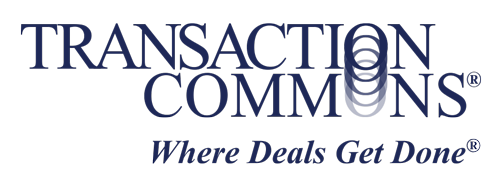Revenge of the Unread

At Transaction Commons we are focused on transaction efficiency. Transaction efficiency refers to the transaction process – minimizing the waste of time, effort and money in the interactions between parties. Transaction efficiency is built around organization and effective communication, and offers the additional benefits of reduced confusion and aggravation. A transaction process that is not efficient is wasteful and frustrating.
Just as “friction” is a source of inefficiency in a mechanical system, there is unnecessary transaction friction in disorganization and poor communication. Transaction Commons’ platform is built around reducing transaction friction. But a transaction involves multiple parties with their own biases, concerns and objectives. Those differences will lead to some unavoidable “friction” in the negotiation process – but this type of “friction” is critical in a multiparty collaborative (i.e. negotiated) transaction.
It is interesting to see recent references to the objective of “frictionless” transactions. These references are often in the context of an automated document signing platform. But a transaction in this setting is only “frictionless” if you assume that it is not negotiated at all. This scenario could happen with a document that is so fairly drafted that the recipient reviews it carefully, agrees that it is completely acceptable, and electronically signs the document without any questions or changes. Right.
In the vast majority of cases the document is likely signed as presented because it has not been read. It may not have been read because the signer lacked the time, or because the transaction was so important that any terms presented would be accepted and therefore there was no need to review the document. And yes, there might be a middle ground where the document is quickly skimmed for any highly objectionable provisions, but realistically most skimming is so superficial that it would not identify important issues. We may be cynical, but we read “frictionless” to often mean “careless.”
Technology is partly to blame. Last week I had the opportunity to hear a presentation by Maryanne Wolf, author of the book “Reader, Come Home: The Reading Brain in a Digital World.” She presented data confirming the comprehension challenges inherent in reading from a screen and raised real concerns about achieving and preserving “deep reading” abilities in the human brain in today’s world. While her discussion focused on the impact of the reading brain on important concepts such as critical thinking, empathy, and reflection, it also called to mind the practical impact of these factors on reviewing and understanding complex agreements on a screen. Especially when there is an easy way to avoid the effort of comprehensive reading and consideration by clicking the inviting “Agree Now” button. The consequences of an absence of “deep reading” are more troubling in the context of a virtual data room – where a huge amount of complex business information is presented for review in electronic form.
People are not proud to admit that they did not carefully read a document they signed – even if they signed it electronically. And many “mistakes” are likely not “material” in the sense that the careless result becomes publicly visible. It is rare that a publicized “bad deal” is admittedly the result of signing an unacceptable document, but these situations are occurring and will only become more common. As time goes on, we will hear more stories of the “revenge of the unread.”
Even though technology may be part of the problem, we believe that technology can also be part of the solution – at least in the agreement review and negotiation process. We are proud to say that Transaction Commons’ objective is not a frictionless transaction, it is a properly negotiated transaction that is organized and fairly governed so the parties are able to effectively review the due diligence information and efficiently negotiate the agreements. It is very important to us at Transaction Commons that we are more than a virtual data room. The most important aspect of Transaction Commons is our “Transaction Space” with its organized structure for the presentation, exchange, and comparison of agreement drafts.
At Transaction Commons we want to fight against the unread in the transaction process, and we will be constantly looking for ways to eliminate waste (and yes, friction) and improve transaction efficiency and fairness.
